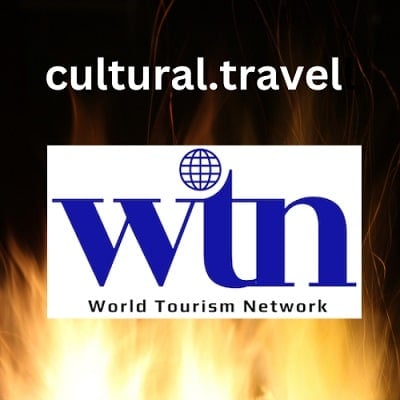World Tourism Network, a world-wide organization with members in 128 nations, recognizes a growing area of tourism – “culture tourism.”
Although in the past the public tended to connect cultural tourism to urban centers, this is no longer the case, and there are now many smaller communities or even villages that can participate in unique forms of cultural tourism. For this reason, the WTN has established a special division dedicated to small and medium location’s as cultural tourism centers.
Currently there is no one definition of “cultural tourism,” however, a possible and viable definition of cultural tourism is that it is tourism centered around visitations to centers of the “beaux arts” such as ballets, concerts, theaters, and/or museums, or to unique cultural experiences. This latter form of cultural tourism might be called “heritage cultural” tourism, as it is less a “performance” than is it an expression of a locale’s heritage or sense of self. In the United States smaller communities have the Amana Colonies in Iowa or the Blues music centers of the Mississippi Delta. Some tourism specialists distinguish cultural tourism from historic tourism, others do not. What is essential is that all forms of cultural tourism are based on the premises that the attraction is of an educational or uplifting nature and that the visit demands a mental response be that response emotional or cognitive.
Cultural tourism is not only a way to attract visitors to your community, but it also provides a sense of local pride and appreciation of the locale. Cultural tourism, especially of the heritage variety creates active participation rather than a passive experience and can be a means to unite a community and provide a common purpose. In order to create a cultural tourism experience there must be collaboration between the local tourism industry, government offices, and the cultural attractions that you are promoting.
To help you develop or recognize the potential of cultural tourism in your community or region, here are some suggestions on where to start.
• Make a list of what you have. Does your area have events that may be legitimately considered “huate culture?” Is there a special ethnic flavor to your locale? Be honest as to what you have. If you have nothing more than a dance troop that passes through town once a year, that is not “haute culture.”
• Collaborate with others in such areas as product development, marketing, and visitor services. For example, if you have a special art show, by advertising the artists, you advertise your region as well. Tourists do not come to your region, they come to attractions, events, and to have an experience they could not have at home.
• Ask questions about your community. How accessible is the attraction? How often is it open, and how easy is it to find? What type of signage does it have? Does the visitor receive real value for his/her investment of time and money?
• Be careful not to overestimate what you have. Be proud of what you have but do not be boastful.Don’t call a high school band a world-famous symphony orchestra no matter how proud your community may be of it. Instead promote it for what it is rather than for what it is not.
• Determine if your cultural tourism is located in an appropriate setting. For example, a museum that is located in a dangerous or dirty part of town, may be filled with wonderful artifacts, but the setting may destroy its value. On the other hand, a visit to a music festival surrounded by beautiful mountains or overlooking a lake, is an experience that few will forget.
• Seek grants to help in developing cultural tourism. Cultural Tourism has a number of funding sources from around the world. These funding sources can improve not only your locale’s economic viability but also its quality of life. These grants exist in the United States and Europe. The United Nations also provides cultural tourism development grants and both the United States and the European Union along with countries such as the United Kingdom and Israel have international grants that can be accessed around the world.
To help you consider how cultural tourism can aid your community consider the following.
• There is no community that cannot develop some form of cultural tourism. Every community has a story to tell or something special. Often the local population fails to appreciate what it has. Try to look at your community from the perspective of the visitor. What do you have that is special? What hidden stories are there that you have failed to see?
• Cultural Tourism can often be developed without a major new or costly investments. In many cases who you are and what you do is the cultural experience. Cultural tourism is less dependent on investing in large scale projects and more dependent on being proud as to what you have.
• As a population ages, so does its desire for cultural tourism. The graying of the European and American population is a plus for cultural tourism providers. These are people who will want to replace physical experiences with less active one and will seek ways to enjoy the local experiences without undue physical stress.
• Cultural tourists often are capable of extended stays and tend to have greater disposable incomes. Therefore, when promoting cultural tourism create food and lodging options that permit innovative marketing packages and ways that allow visitors to participate while still having basic comforts.
• Cluster! Cluster and Cluster! Many cultural tourism attractions are of short-term duration. The way to make a short-term attraction into a viable attraction is to combine it with other events of attractions. Develop clusters and create ways so that these short-term attractions will enhance each other rather than compete with each other.
The World Tourism Network’s Bali Five-in-One Think Tank Experience: It is more than a mere chance to learn and network in the world’s most hospitable location.
When: September 28 – October 1, 2023
If your business is related to Travel & Tourism, then you can discover new experiences in a unique part of the world in an entirely new format from other global travel tourism events.
This out-of-the box unique experience will allow you to meet and network with the contributors who are shaping the future of our Travel & Tourism industry be more accountable and sustainable.
Some of the topics to learn and discuss are:
*Marketing to Indonesian tourists
*Health and medical tourism
*Cultural tourism
*How climate change is impacting SMEs around the world
*Resilience with passion
*Ad-on tours of Bali
For more information go to time2023.com or contact Mudi Astuti at <[email protected]>
Learn all about the World Tourism Network’s new cultural tourism program at cultural.travel.
You can become a member of this exciting program at wtn.travel/join.




